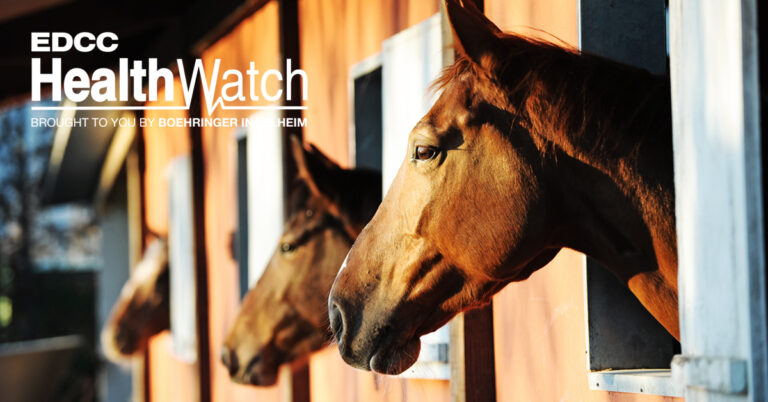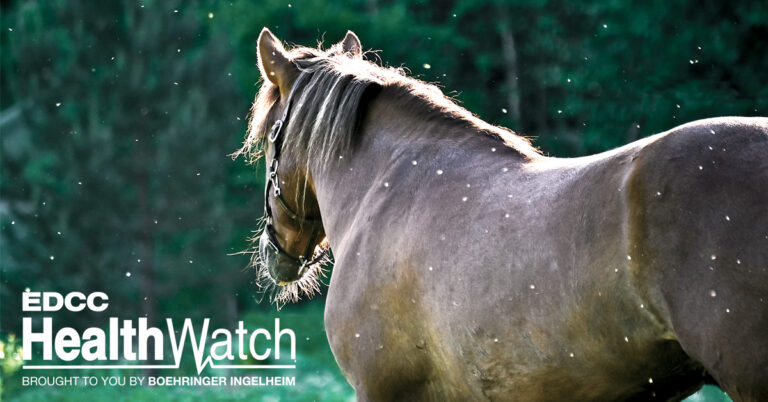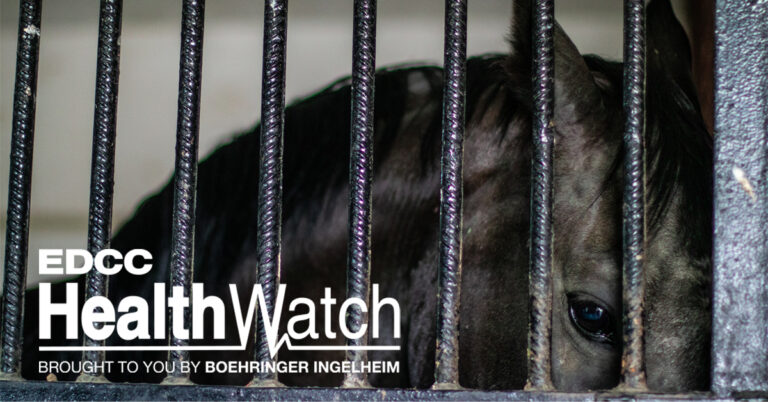
A horse at a stable in MRC de Roussillon, Quebec, is confirmed positive for Rhodococcus Equi.
EDCC Health Watch is an Equine Network marketing program that utilizes information from the Equine Disease Communication Center (EDCC) to create and disseminate verified equine disease reports. The EDCC is an independent nonprofit organization that is supported by industry donations in order to provide open access to infectious disease information.
About Rhodococcus Equi
Rhodococcus equi is a Gram-positive facultative intracellular pathogen that is a common cause of bronchopneumonia in foals between 3 weeks and 5 months of age.
The most common clinical manifestation of R. equi infections in foals is bronchopneumonia. Early clinical signs may only include a slight increase in respiratory rate and a mild fever. These subtle clinical signs are often either missed or ignored, allowing the condition to progress. As the disease progresses, clinical signs might include:
- Decreased appetite
- Lethargy
- Fever
- Rapid breathing (Tachypnea)
- Increased effort of breathing characterized by nostril flaring and increased abdominal effort
Rhodococcus equi is diagnosed based on known history of cases on the farm (indicating presence of the bacteria on the grounds), ultrasound and/or x-ray evidence of abscesses in the lungs, bloodwork and identification of the bacteria by culture and/or PCR testing.
Antibiotics such as erythromycin, clarithromycin and azithromycin can be used to treat R. equi infection in horses, but they can also result in potentially serious side effects such as diarrhea and overheating (hyperthermia). Resistance of the bacteria to some antibiotics (macrolides) has also been reported.














